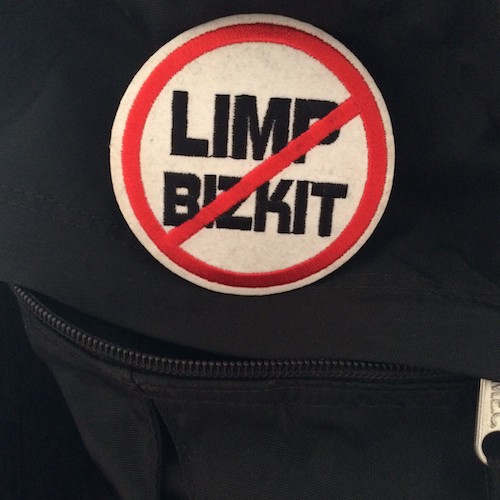Fuck Nostalgia, Maybe
by Alexandra Molotkow

Kids don’t hate their parents’ music anymore. I’ve heard Gen-Xers complain about hippie music, and I know my Boomer dad resented his parents’ polka. But in this day and age, the reverse is truer: kids are more likely to love the music their parents hated the first time around. I love ’70s soft pop, which, to my dad, is music for waiting out death to on brown polyester. Even the rock I like from the ’60s isn’t his bag — I once played him Bubble Puppy’s “Hot Smoke and Sasafrass” thinking he’d at least remember the riff fondly, but he thought the guys held their guitars too high.
This is both generation-specific and universal. Specific because, of course, kids today are less likely to divide their taste along genre lines: your dad might like blues rock, or jazz, or ’70s funk, or ’70s prog, but it’s unlikely he loves all of the above. (Though not impossible — hey, cool dad!) Universal because no matter how old you are, your parents’ past is a fantasy. And because time sweeps away those fine webs of significance that stick to a trend in its heyday, and because even the obviously-very-bad is redeemable from a distance, when it’s not forced on you, once you get to opt in. The past means something different for us, and that’s natural, and basically OK — but.
The trend cycle works differently than it used to. The 20-year nostalgia cliche seems dated; now, as soon as a thing happens, it sits on a shelf for whoever needs it next. Culture is not a bodega that holds only so many goods at once, but a great big supermarket. As Kurt Andersen pointed out a few years back, in an essay whose takeaway I have problems with but which nonetheless points to an actual thing: we’re swamped with technological and sociocultural change — and we reject so much so quickly — but the opposite is true for aesthetics. In music, in film, in literature, again, everything accumulates.
This is in many ways a good thing, and in many ways it encourages innovation. Everything is material, and resourcefulness is key: it is much more productive to rummage through the past, taking what you can use, than to revile it. The speed at which the past is recycled can make your head spin — there are revivals in process of movements I never realized were over. But new teens are made every day, and what you loved as a teen means something entirely different to them, and that’s exciting, for culture and personally. New waves of interest give you permission to love things you might have forgotten about or rejected, things that are part of you whether you want them to be or not.
But the nostalgic lens is rosy. Once something becomes an object for nostalgia — which is to say, immediately — it tends to seem beyond reproach. What goes for Hollywood cinema applies to the culture at large: the pressure to succeed increases the likelihood of falling back on established formulae. And established formulae have never been more acceptable, because no aesthetic would feel out of place in our time. And this is a problem. Because sometimes the past really did suck. When we fully embrace the old because it’s familiar, or fantastical, or campy, we miss the chance to do better. Scraps of the past make the present, but there’s something to be said for rejection, as an instrument of self-definition, and ablution.
Musically speaking, I love the freedom of punk, and the idea of music as a collective tool. But I see huge problems with its ethos, which substitutes political for personal angst, and to be honest, sometimes I just wish the music were better. Emo is in revival (or “did it ever die?”), and while I loved it the first time around, I sort of hate the part of me that loved it — the version of me that saw my problems as monumental, and assumed that because I was sad, I couldn’t also be an asshole. I loved the all-ages shows and the feeling of safety, but I hated the performance thereof; loved the sincerity, hated the whining. And I hate, hate, hate the fact that post-emo indie rock — indie rock in general, really — hasn’t changed significantly since the ’80s, and that it’s performed by more or less the same people.
As for nü-metal — to be honest, I despised it the first time around for reasons so obvious that its revival seems almost just. It’s music for senseless, entitled violence. But I do love how reclaimable it is. “Break Stuff” is a super cathartic song if you’re not playing it for a pit of drunken, sunburned cum kegs. But don’t forget Woodstock ‘99.
Any aesthetic is a packet of history: it’s there for the future, but it holds the past. Those ephemeral webs of significance — the associations that confound our parents when we profess to love the music they hated — are important and worth understanding, even when they seem irrelevant to a new context. There are things I hated growing up, that stood (sometimes ridiculously) for things I felt personally-ideologically opposed to; I’m ready to like them now, and excited to see them find a new home in the hearts of new listeners. But I’m daddish in one sense: I believe it’s worth understanding why people reject the things they did, if only to make them better for posterity, and to know — in the case of disco, for instance — how wrong they were.